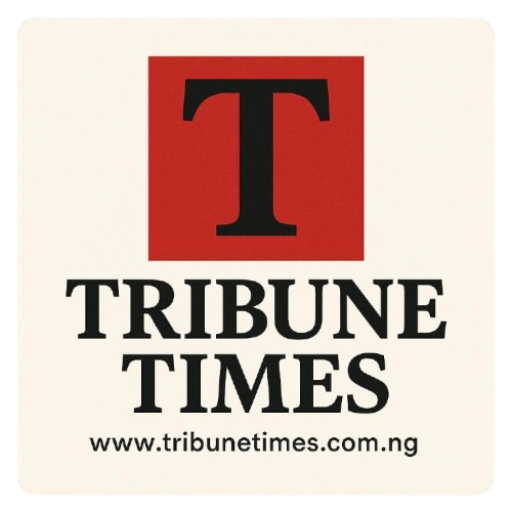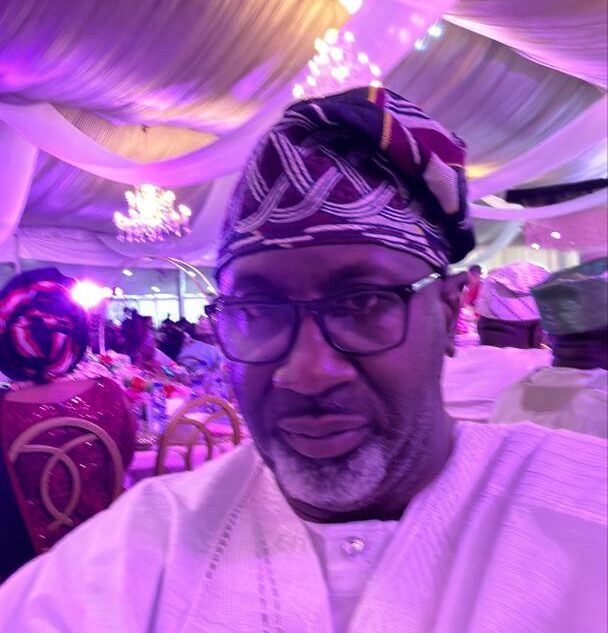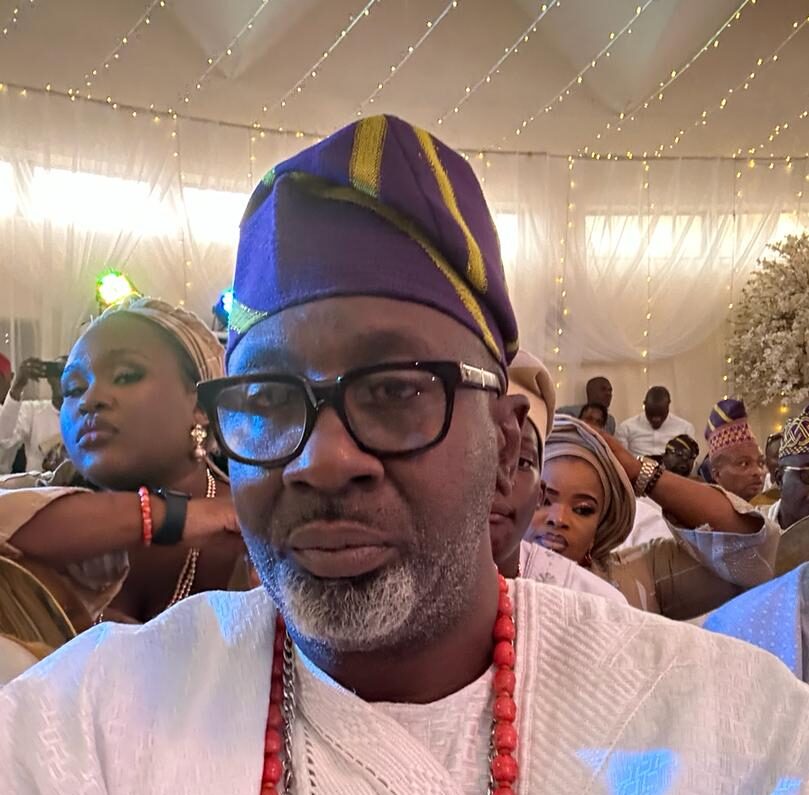The Battle between Light and Darkness is what Nigeria is experiencing right now – Abayomi Odunowo.
Nigeria is currently experiencing a battle between light and darkness, with corruption and injustice plaguing the nation. For several years, the country has been governed by individuals who have exploited their power for personal gain, leading to widespread corruption in the private, governmental, and religious sectors. As a result, the masses have been unwittingly coerced into accepting a system that perpetuates inequality, poverty, and injustice.
The battle between light and darkness is evident in the struggles of the Nigerian people as they strive to build a better future for themselves and their country. On one hand, there are those who seek to bring about positive change and uplift the nation from the grip of corruption and injustice. These individuals are fighting for transparency, accountability, and the rule of law to prevail in Nigeria.
On the other hand, there are those who continue to perpetuate the status quo, using their power and influence to maintain the darkness that shrouds the nation. This battle between light and darkness is unfolding in the hearts and minds of every Nigerian citizen, as they grapple with the consequences of corruption and injustice in their daily lives.
In order for Nigeria to emerge from this battle victorious, it is imperative that the forces of light continue to push for positive change and advocate for a more just and equitable society. It is only through the triumph of light over darkness that Nigeria can truly fulfill its potential as a prosperous and thriving nation.
The blatant stealing of money and conversion to dollars by MDAs (Ministries, Departments, and Agencies) is a concerning issue that has plagued the government for far too long. It is simply unacceptable that top government officials are collecting exorbitant amounts of money for appointments, only to then plunder the budget of the ministry or MDA once in their seat. This culture of corruption is deeply ingrained in the system and is incredibly detrimental to the country as a whole.
The recent discovery of a director in the Ministry of Finance with billions in a private account is just one example of the widespread rot that exists within the government. It is outrageous that such acts of corruption and embezzlement can occur without any repercussions. This not only undermines the trust of the people in the government but also hinders the development and progress of the nation.
Furthermore, the practice of state governments collecting allocations and converting them to dollars without any accountability is deeply concerning. This, coupled with the borrowing of money from banks to create a facade of progress, is a clear indicator of the dire state of affairs in the government.
It is imperative that immediate action is taken to address these issues and hold those responsible accountable for their actions. The government must implement strict measures and oversight to prevent such blatant theft and corruption from continuing. The people deserve transparency, accountability, and a government that works in the best interest of the nation.
In the Nigerian economy, the practice of running on borrowed money that is not backed by any real financial resources has become alarmingly widespread. The consequences of this reckless economic strategy have been devastating, resulting in the depletion of the country’s reserve funds and the erosion of its financial stability.
During the administration of President Olusegun Obasanjo, the country had a $60 billion reserve fund that was squandered through the use of non-existent subsidies and the printing of money that was not supported by any real financial instruments. This irresponsible fiscal management has left the country in a state of economic crisis, with a negative balance and a lack of infrastructure to show for it.
The practice of running an economy on borrowed money without a plan for repayment is not sustainable and has severe consequences for the country’s financial health. It is a clear violation of the laws and regulations put in place by the Central Bank of Nigeria (CBN) and poses a significant threat to the stability and prosperity of the nation.
The impact of this fiscal mismanagement is felt across all sectors of the Nigerian society. The educational system is on the verge of collapse, as the government’s ability to fund schools and provide quality education for its citizens has been severely compromised. The lack of investment in education has had a detrimental effect on the country’s future prospects, as a poorly educated workforce will struggle to compete in the global economy.
Similarly, the government’s health delivery service has been compromised by the economic mismanagement. Hospitals and healthcare facilities are underfunded and unable to provide the level of care that the population needs. This has led to a decline in the overall health and well-being of the Nigerian people, as they are unable to access the healthcare services that they require. The consequences of this economic mismanagement are devastating, and the people are paying the price for the government’s irresponsible fiscal policies.
To address the economic crisis and reverse the damage caused by years of mismanagement, the Nigerian government must take urgent and decisive action. This will require a comprehensive reform of the country’s fiscal policies, with a focus on responsible borrowing, investment in infrastructure, and sound financial management.
The government must also prioritize investment in education and healthcare, as these are fundamental pillars of a prosperous and healthy society. By investing in these key sectors, the government can lay the groundwork for sustainable economic growth and prosperity for all Nigerians.
In conclusion, the Nigerian economy has been ravaged by years of irresponsible fiscal management, leading to a depletion of reserve funds and a negative balance. The consequences of this reckless economic strategy have been devastating, with a decline in the quality of education and healthcare services. It is imperative that the government takes urgent and decisive action to address the economic crisis, with a focus on responsible borrowing and investment in key sectors such as education and healthcare. Only through comprehensive reform and sound financial management can Nigeria build a prosperous and sustainable future for its citizens.
In the ongoing battle between light and darkness, it is crucial for us to embody empathy, resilience, and strength. While the current situation may be challenging and uncertain, it is imperative to remember that enduring this hardship is far preferable to the alternative of a collapsed country where everything falls apart and chaos reigns. Though there may be some form of relief in the future, it is paramount to maintain control and not allow the forces of darkness to use us as pawns in their quest to thwart a brighter future that is assuredly on the horizon.
As the elements of darkness continue to be dislodged and fight for survival, it is important to remain vigilant against their attempts to sow insecurity and destabilize the country. It has become apparent that these malevolent forces are surreptitiously financing and sponsoring increased security threats, as well as hoarding and controlling access to essential resources such as food. We must remember the lessons learned during the Covid crisis, where food shortages were exacerbated by hoarding, and work together to identify the location of these hoarded supplies in order to inform the relevant authorities and prevent further manipulation by these dark forces.
In this battle between light and darkness, it is our duty to stand firm, united, and unwavering in the face of adversity. Let us not falter in our resolve to overcome these challenges and build a brighter, secure future for ourselves and future generations.
The recent increase in the value of the dollar has brought about significant challenges for the masses, making their lives more difficult and adding to their already existing burdens. Many have speculated that this surge in the dollar’s value cannot be a naturally occurring phenomenon, but rather a deliberate decision made by those in power. It is believed that these actions are aimed at provoking a reaction from the masses, perhaps in the hope of inciting social unrest. However, it is important to remember that such strategies are not sustainable in the long run.
I firmly believe that this difficult period will not last forever, and that better days are on the horizon. The hardships we are currently facing will soon become nothing more than a distant memory, much like the challenges endured during the Covid-19 pandemic. It is crucial for us, especially the youth, to remain hopeful and resilient during these trying times. Taking these hard decisions now will lead to long-term solutions, rather than short-term fixes that have been implemented repeatedly in the past.
The issue of minimum wage is a complex one, and the working class should carefully consider their options before requesting for salary increases. While an increase in salary might seem like a solution to financial struggles, it often leads to an increase in the cost of living, leaving workers with the same relative purchasing power. Instead of simply requesting higher salaries, the focus should be on addressing the root causes of financial strain, such as the high cost of food, transportation, housing, and education.
One effective solution to alleviate the burden on the working class would be for the government to focus on reducing prices. For example, the introduction of a monthly card for transportation or healthcare insurance at a reasonable cost would allow workers to afford essential services without straining their finances. Additionally, efforts to streamline the supply chain and reduce middlemen in the food industry would ensure that the cost of food is more affordable for consumers. In terms of housing, the introduction of low-cost mortgages or rent-to-own options would help working families achieve homeownership and financial stability.
Rather than solely focusing on salary increases, the working class should advocate for systemic changes that address the high cost of living. By targeting essential expenses and introducing measures to make them more affordable, the government can support hardworking individuals and families in achieving financial security and stability.
I urge all individuals to hold onto hope and remain steadfast in the face of adversity. It is through these challenges that we will emerge stronger and more united as a nation. Let us continue to endure, knowing that brighter days lie ahead.
Otunba Abdulfalil Abayomi Odunowo
National Chairman AATSG
13th February, 2024.
Do you have any information or event for TribuneTimes to publish or cover? Kindly Call us on +2349053535322 or send us message on Whatsapp number +2349053535322 or send us an email here




